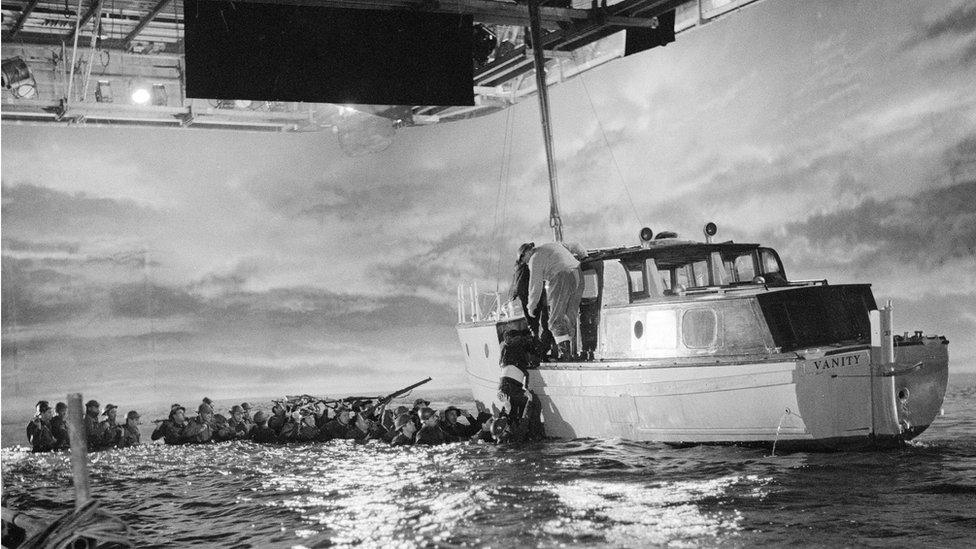What actually happened at Dunkirk?
- Published
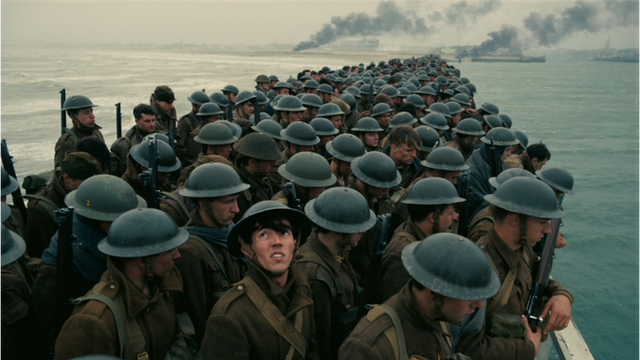
Dunkirk tells of British and Allied troops trapped on a beach surrounded by enemy forces in 1940
Many historians say it was the battle that cost Germany the Second World War.
Dunkirk, directed by the acclaimed Christopher Nolan (The Dark Knight, Inception, Interstellar), tells the epic tale of the chaotic evacuation of British and French Allied troops from Northern France in 1940.
Ahead of its public release on 21 July the movie has received excellent reviews from critics.
If you compare Dunkirk's score on the review aggregator website metacritic.com with the scores of other films, it ranks among the top five Oscar best picture nominations of the past 21 years, and among the top 10 war movies of all time.
The debut performance of One Direction's Harry Styles was also an unexpected hit.
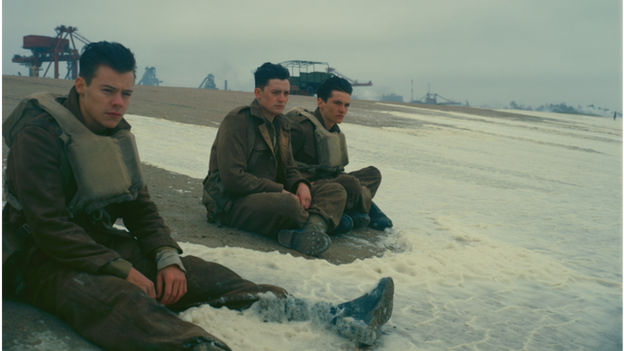
The Guardian's Peter Bradshaw called Styles' performance a "perfectly strong acting debut"
What was 'Dunkirk'?
Winston Churchill, Britain's Prime Minister during World War II, called it a "miracle of deliverance" in his famed We Shall Fight on the Beaches speech in 1940.
He was praising the remarkable evacuation of 338,226 British and French troops from the beach and harbour at Dunkirk.
Initially it was thought the Germans would reach the beach within two days, allowing time for only 45,000 troops to be brought to safety.
But thanks to a combination of German confusion and Allied bravery, enough British and French troops were saved to see out the rest of the war.
Why were they on the beach in the first place?
After Nazi Germany invaded Poland in 1939, the British sent in troops to defend France. However, as Nazi Germany moved forward into Belgium and the Netherlands in May 1940, the allies made a near-fatal error.
The French-German border was defended by a series of barriers and weapons called the Maginot Line, but the area to the north was only blocked by a forest.
The forest was thought to be too thick to require heavy defence, but the Germans found a way through.
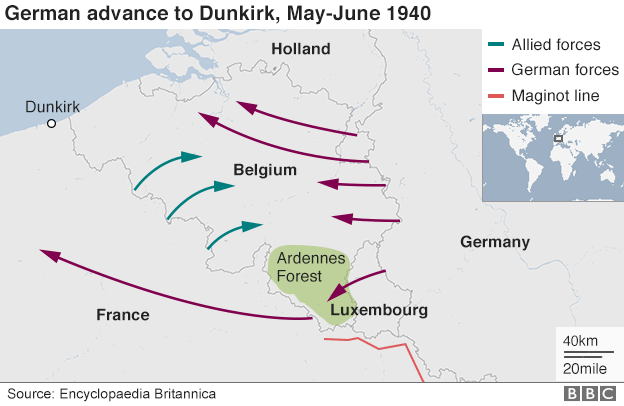
They marched around the back of the Allies in France and forced them over into Belgium, where they were faced with more Germans to the north.
The only option left was to retreat to Dunkirk, where they could be taken back to England.
Mistakes
With the majority of Britain and France's entire armies in one area - surrounded by the Germans - this could have been the turning point of the war.
And then, for reasons that are still mysterious, Hitler ordered his troops to halt.
The Allies were gifted with time. Naval ships, vehicles, passenger ferries, fishing boats, yachts and boats owned simply for pleasure were assembled.
A handful of civilians even joined the mission, sailing out into the Channel voluntarily.
Over the course of nine days this fleet, supported by British planes overhead, was able to rescue most of the troops.
Reality
The film may become a huge success, but the reality of Dunkirk was, as Winston Churchill described it, a "colossal military disaster".
"Wars are not won by evacuations," Churchill said. That may be true, but it is hard not to see Dunkirk as a pivotal moment in the war.
- Published18 July 2017

- Published15 July 2017
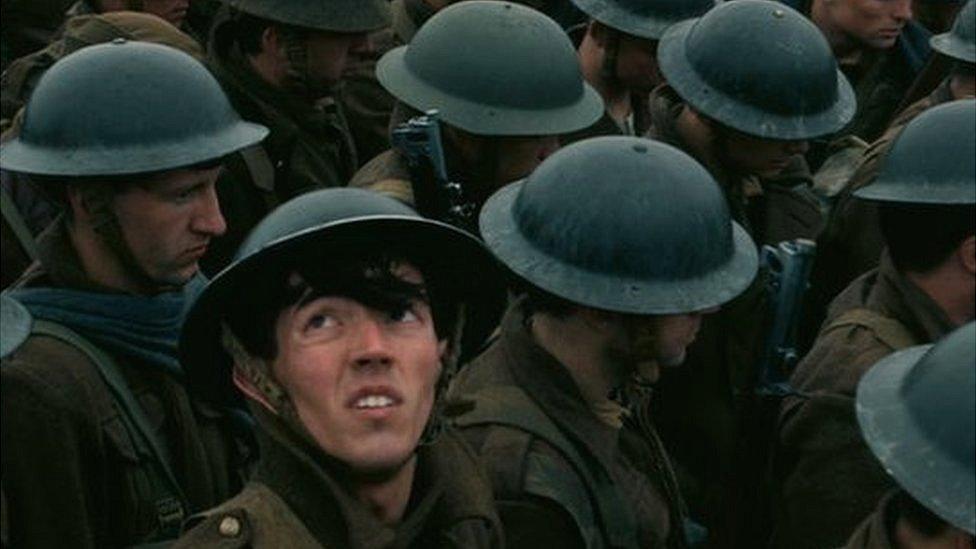
- Published12 July 2017
